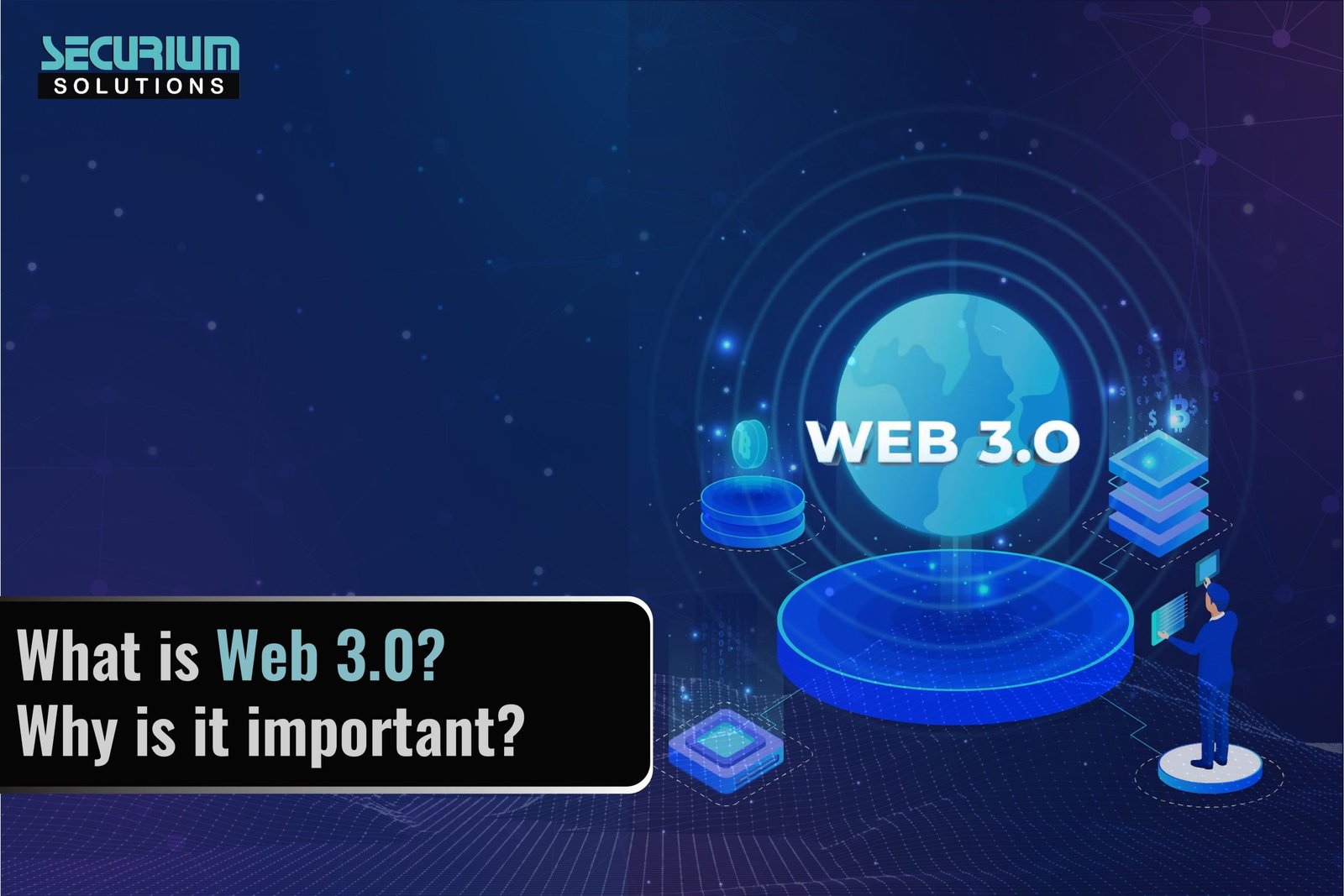February 22, 2023 / by securium solutions
Overview
Web3, short for “web 3.0“, is a term used to describe the next generation of the internet, which is focused on decentralization and empowering users with greater control over their data and online interactions. Web3 builds upon the current web (Web 2.0) by leveraging emerging technologies such as blockchain, smart contracts, and decentralized applications (dApps) to create a more open, transparent, and secure online environment.
At a high level, Web 3 aims to replace centralized intermediaries such as social media platforms, financial institutions, and online marketplaces with decentralized alternatives that are more democratic and user-centric. By using blockchain and other distributed technologies, Web3 enables secure, trustless interactions between users without the need for intermediaries to verify or facilitate transactions.
Introduction to Web3.0
The current internet, or Web2, is characterized by centralized platforms such as Google, Facebook, and Amazon, which have significant control over the data and information that flows through their platforms.
Web 3.0 aims to provide a more decentralized infrastructure that is not controlled by any central authority. It is built on top of blockchain technology, which enables secure, transparent, and tamper-proof record-keeping.
Web 3.0 is still in its early stages of development, but it has the potential to revolutionize the way we use and interact with the internet.
Key Technologies of Web3.0
Blockchain: Blockchain is a distributed ledger technology that allows for secure, transparent, and tamper-proof record-keeping. It is the core technology that underpins Web 3.0, as it enables peer-to-peer transactions without the need for intermediaries such as banks or payment processors.
Smart contracts: Smart contracts are self-executing programs that run on blockchain networks. They are used to automate the execution of contracts and other legal agreements, and to ensure that the terms of the agreement are enforced automatically. Smart contracts are an essential component of Web 3.0, as they enable the creation of decentralized applications that can operate without the need for a central authority.
Decentralized storage: Decentralized storage is another core technology of Web 3.0. It enables the storage of data on a decentralized network of computers, rather than on centralized servers. This means that the data is not controlled by any single entity, but is instead distributed across the network, making it more secure and less susceptible to hacking or data breaches.
Benefits of Web3.0
Transparency: Blockchain technology enables secure, transparent, and tamper-proof record-keeping. This means that users can trust that the information they are receiving is accurate and has not been tampered with.
Security: Decentralized storage and smart contracts make Web 3.0 more secure than Web 2.0. Decentralized storage means that data is not stored on centralized servers, which are more susceptible to hacking and data breaches. Smart contracts ensure that the terms of agreements are enforced automatically, without the need for intermediaries.
Interoperability: Web 3.0 enables the creation of interoperable applications and services that can communicate with each other seamlessly. This means that users can access a wide range of services and applications without having to create multiple accounts or jump through hoops to access them.
Use Cases for Web3.0
Decentralized finance (DeFi): DeFi is a new form of finance that operates on decentralized networks and is not controlled by any central authority. DeFi applications enable peer-to-peer lending, borrowing, trading, and other financial activities without the need for intermediaries such as banks or brokers.
Social networking: Decentralized social networks enable users to connect and communicate with each other without the need for a central authority. These networks are more secure and privacy-focused than traditional social networks, as they enable users to control their own data and information.
Conclusion
Web 3 has become a catch-all term for the vision of a new, better internet. At its core, Web 3 uses blockchains, cryptocurrencies, and NFTs to give power back to the users in the form of ownership. A 2020 post on Twitter said it best:
Web1 was read-only,
Web2 is read-write,
Web3 will be read-write-own.
Author
Lokesh Yadav
Cyber Security Intern




